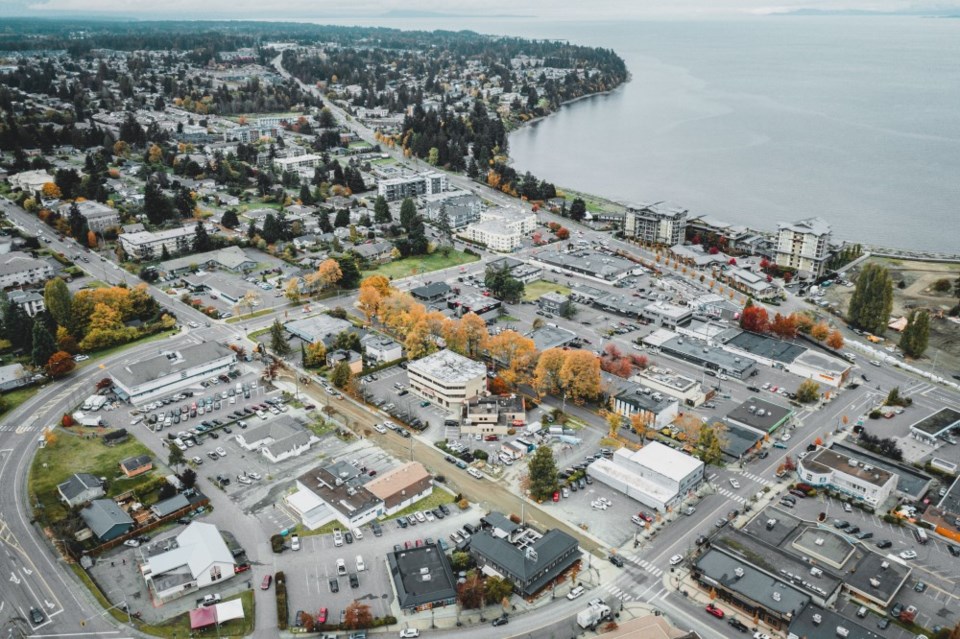The annual release of home ownership data by Statistics Canada in early October points to Vancouver Island communities having some of the lowest rates of investor-owned residential real estate in the province.
Parksville is a case in point, with investor-owned properties accounting for 14.9 per cent of the residential inventory. It has the lowest rate of 26 municipalities surveyed, with Campbell River ranking third at 17.2 per cent. Duncan (17.8 per cent) and Victoria (19.5 per cent) rank fourth and fifth.
Of the five communities least likely to have investor-owners, Salmon Arm is the only one not located on Vancouver Island.
Demographics are the most likely reason for the low rate of investor-owners in these communities, said Brendon Ogmundson, chief economist with the BC Real Estate Association (BCREA).
“My first take is that many people move to parts of the Island to retire and not necessarily to be landlords,” he said.
This hasn’t stopped the BC NDP from expanding the province’s speculation and vacancy tax this year to the two municipalities least likely to have investor-owners.
Parksville and Salmon Arm both became subject to the tax on Jan. 1, with owners required to file declarations in 2025.
All five communities are also subject to provincial restrictions on short-term rentals, which limit the rentals to the host’s principal residence.
Ryan Berlin, senior economist with the Rennie real estate brokerage, echoed Ogmundson in singling out how owners use their properties – and what draws them to an area in the first place – for the low rate of investor-owners.
“From what I see in the data, the Island (at least, the southern part) sits between Metro Vancouver – more live and work, less play – and Kelowna – less live and work, more play,” he said.
While southern Vancouver Island is an attractive destination for residents seeking a certain lifestyle, there is also sufficient economic activity to ensure properties are held by owner-occupiers.
Berlin points to the estimates of short-term rentals in various communities to make his point.
Short-term rentals as a share of all dwellings in Vancouver is 2.8 per cent while in Victoria the rate is 4.1 per cent. Lake Country (5.8 per cent) and Peachland (6.7 per cent) top the list of communities with high proportions of short-term rentals among their residential stock.
“The real kicker is that a lesser proportion of these short-term rentals are actually suitable for long-term accommodation,” he added.
Berlin estimates that just 1.5 per cent of the residential units operating as short-term rentals in Victoria are viable long-term rental properties.
The data indicates that investors, when present, are limiting themselves to investment-grade properties while owner-occupiers are setting the pace for the market.
Yet even if the concerns over investors were genuine, Statistics Canada data indicates that the proportion of investor-owned properties in the province’s major municipalities is falling.
The only municipality to see investor-owned properties increase since 2020 has been Abbotsford. All other municipalities have seen the rate of investor ownership fall – in many cases, by more than a percentage point. Parksville, for example, saw the rate of investor ownership fall by half a percentage point while Campbell River’s rate declined by 1.2 percentage points.
The challenging environment for investors prompted BCREA to issue a call in September for changes to provincial policies regarding short-term rentals.
“There is no question that some of these short-term rental units should be functioning as long-term rentals, but there are some legitimate uses for short-term rentals that are no longer permitted under the legislation,” said Trevor Hargreaves, senior vice-president, policy and research, with BCREA.
BCREA recommends excluding high-tourism areas from the short-term rental rules to facilitate accommodation opportunities as well as in cases related to the accommodation of medical staff, patients and caregivers and those in need of short-term accommodation either for business stays or while waiting to take occupancy of homes or apartments.



